Only 5 from the top 20 still in contention
Thursday’s tiebreakers in Goa saw three players from the top ten in the starting rank — plus the 11th seed — eliminated from the 2025 FIDE World Cup.
- Praggnanandhaa Rameshbabu (India, 2768) lost to Daniil Dubov (FIDE, 2674)
- Vincent Keymer (Germany, 2773) was knocked out by Andrey Esipenko (FIDE, 2681)
- Maxime Vachier-Lagrave (France, 2740) was defeated by Aleksey Grebnev (FIDE, 2617)
These were the three most striking results among the six upset victories produced in a day of tiebreaks that featured 11 matches. The remaining three upsets:
- Sam Shankland (United States, 2649) eliminated Richard Rapport (Hungary, 2740)
- Gabriel Sargissian (Armenia, 2616) knocked out Awonder Liang (United States, 2701)
- Frederik Svane (Germany, 2640) defeated Shant Sargsyan (Armenia, 2664)
In today’s fast-paced chess world, especially online, where blitz and rapid games dominate, the traditional approach of grinding through lines of opening theory can feel overwhelming, and even unnecessary. The real challenge? Striking the right balance in your opening preparation. How deep should you go? Where do you stop? This course is built on the timeless wisdom of my legendary coach, Chebanenko, who designed opening repertoires for his “lazy” students – not lazy in attitude, but smart in approach. His philosophy? Don’t memorise. Understand.
Five matches went in favour of the higher-rated player, with Arjun Erigaisi (India), Wei Yi (China), Javokhir Sindarov (Uzbekistan), Sam Sevian (United States) and Pentala Harikrishna (India) all advancing to the round-of-16.
These results, combined with earlier exits, have left only five players from the top 20 still competing. For context, in the 2023 World Cup – which was won by perennial favourite Magnus Carlsen – seven members of the top 20 reached the round-of-16, and four advanced to the quarterfinals. Notably, two of the players who were outside the top 20 that year but reached the later stages were none other than Praggnanandhaa and Erigaisi.
This comparison suggests that while early-round volatility is common, established favourites often assert themselves in the decisive final rounds.
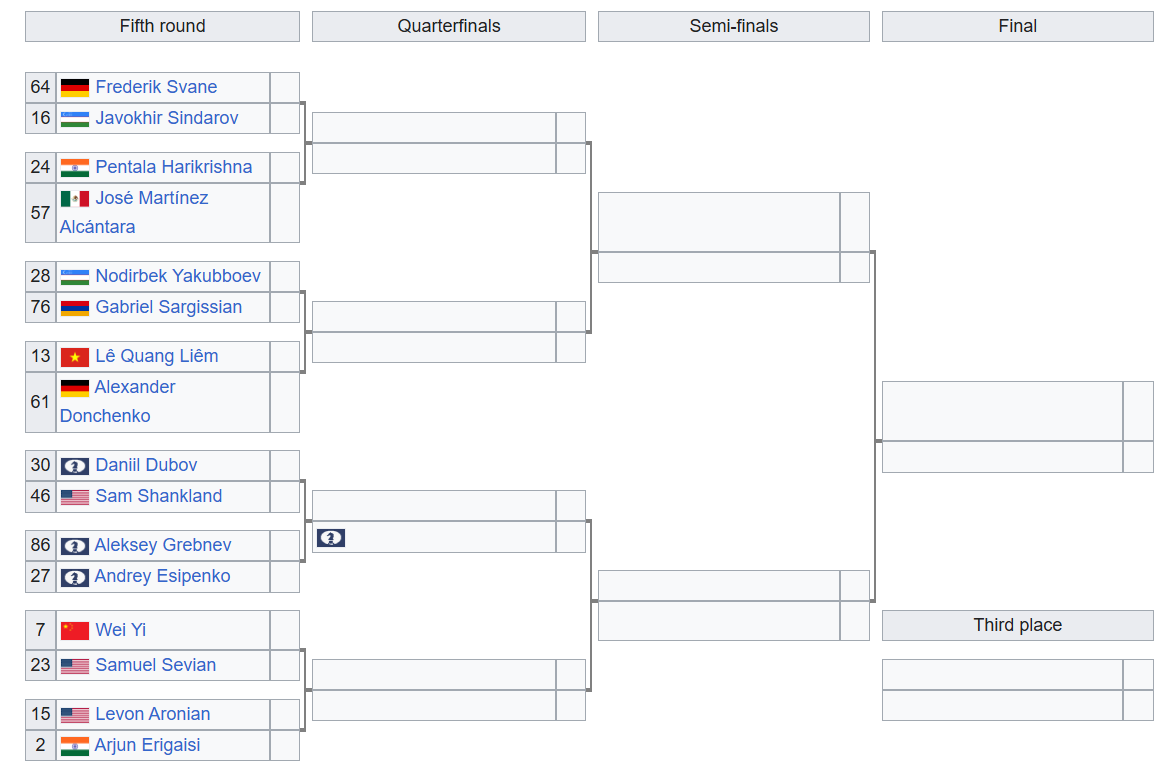
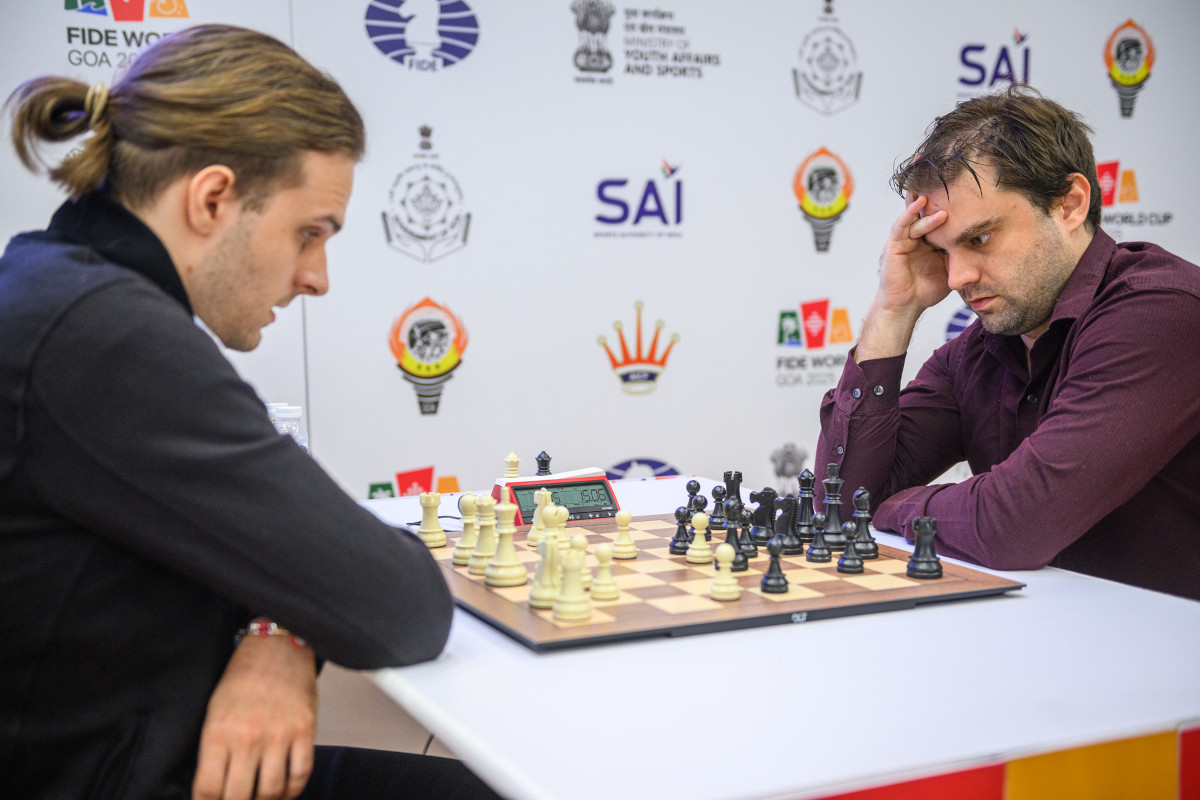
Sam Shankland defeated Richard Rapport in both 15+10 game | Photo: Michal Walusza
For Keymer, Vachier-Lagrave and Rapport, the defeats were particularly painful, as their chances of reaching the Candidates Tournament have now all but vanished. MVL and Rapport have participated in previous Candidates cycles, but for Keymer this would have been a first appearance. The German star was agonisingly close to qualification at the Grand Swiss, where a single, uncharacteristic blunder against compatriot Matthias Bluebaum prevented him from entering the final round as the sole leader. At just 20 years old and ranked fourth in the world, the level-headed Keymer is expected to recover from this setback and remain a strong contender in future cycles.
Among those still in contention, the highest-rated players are Arjun Erigaisi, Wei Yi, Le Quang Liem, Levon Aronian and Javokhir Sindarov. Only Aronian has previously played in a Candidates Tournament, guaranteeing that at least two new faces will qualify via the World Cup – the event grants three spots.
National representation in the round-of-16 is as follows: United States (3 players), FIDE (3), India (2), Uzbekistan (2), Germany (2), and China, Vietnam, Mexico and Armenia (1 each).
Particularly noteworthy is that all three players representing FIDE – Dubov, Esipenko and Grebnev, all hailing from Russia – advanced in Thursday’s tiebreaks. Curiously, the trio are placed on the same section of the bracket, which means only one of them can reach the semifinals. Although Dubov and Esipenko still appear under the Russian flag on the official FIDE rating website, the 19-year-old Grebnev is currently designated as representing FIDE.
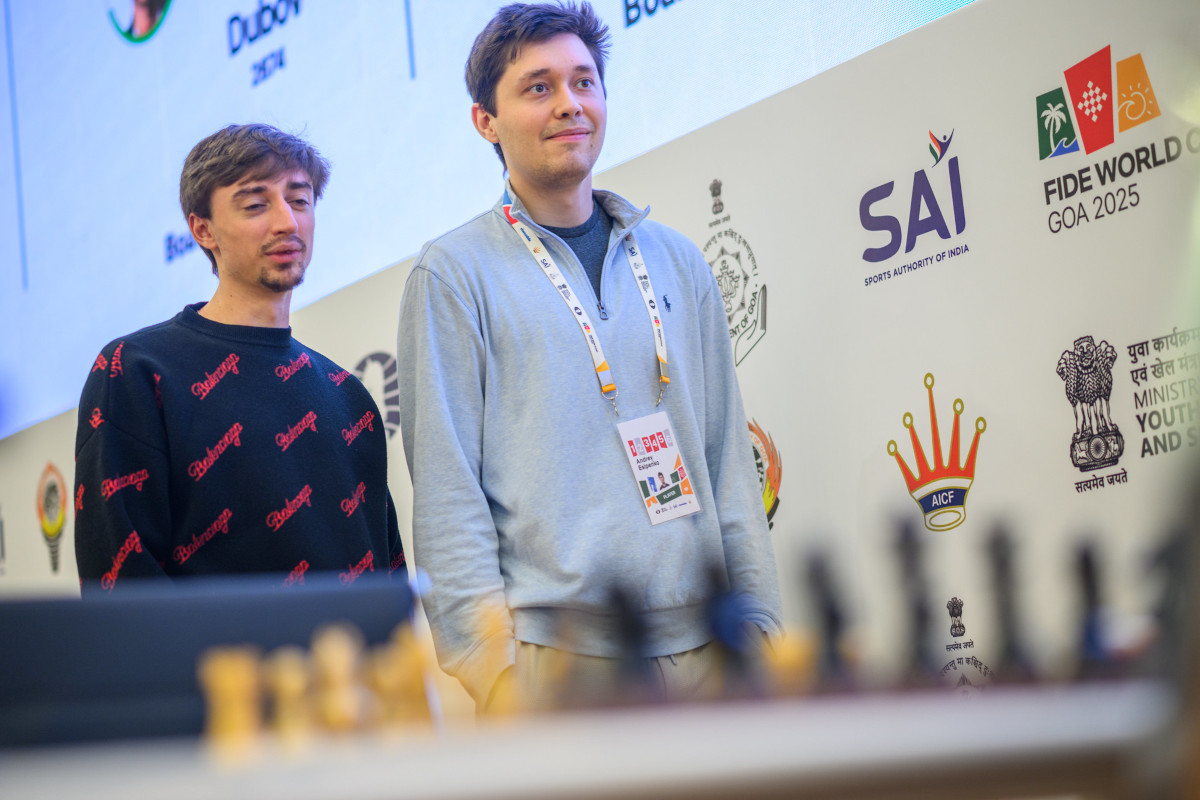
Daniil Dubov and Andrey Esipenko | Photo: Michal Walusza

19-year-old Javokhir Sindarov | Photo: Michal Walusza
In this insightful video course, Grandmaster David Navara shares practical advice on when to calculate deeply in a position — and just as importantly, when not to.
Free sample video: Introduction
Free sample video: Invisible moves

Vincent Keymer had a great year, but it is very unlikely that he will participate in the 2026 edition of the Candidates | Photo: Michal Walusza
Regarding the tiebreak structures themselves, most matches (8 of the 11) were decided in the first rapid set, played at a 15+10 time control. In fact, two of the three eliminated rating favourites – Pragg and Vachier-Lagrave – were knocked out after just these two games.
One match, Keymer–Esipenko, was settled in the following 10+10 section, as Esipenko scored back-to-back wins after all previous game had been drawn.
Another was resolved in the 5+3 blitz games, when Wei Yi finally overcame Parham Maghsoodloo with consecutive wins after the players had drawn their first six encounters, including the classical games in which Wei missed a clear endgame win in the second.
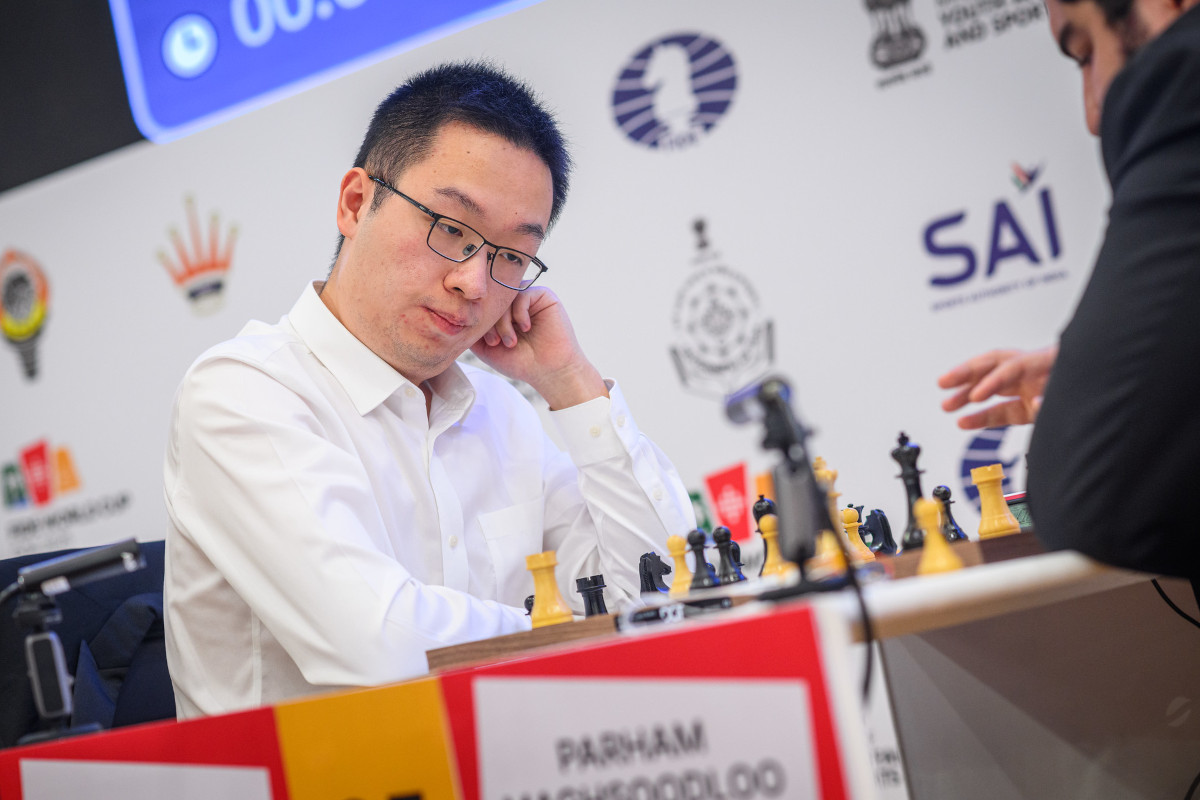
Wei Yi | Photo: Michal Walusza
Only one match continued after that section, and it even reached Armageddon: the marathon contest between Sam Sevian and Lorenzo Lodici. Lodici, the lowest-rated player still remaining and coming off victories over Hans Niemann and Michael Adams, twice won must-win games to keep the match alive all the way to the sudden-death stage.
In the bidding, Sevian offered 2 minutes 41 seconds, accepting Black with draw odds, while Lodici started the game with 4 minutes and the white pieces.
In the Armageddon, Sevian quickly seized the initiative. After Lodici’s ambitious but imprecise 13.g4 – a move seeking a kingside expansion – Sevian struck with 13…d4, taking immediate advantage of White’s neglect of the centre.
The sequence 14.exd4 exd4 15.e5 Nxe5 16.Nxe5 dxc3 17.Nc4 Qc6 18.Rhe1 cxb2 left the US grandmaster with a clearly favourable position: the safer king and easier plans.
Sevian maintained control (by blitz standards), gradually increasing his advantage. Once queens were traded and he emerged two pawns up, Lodici resigned.
Although eliminated, Lodici’s World Cup run has been one of the most memorable stories of the tournament. The 2018 Italian national champion defeated two elite grandmasters, pushed Sevian to the limit, and delivered a standout performance.

Lorenzo Lodici resigns in the sudden-death decider | Photo: Michal Walusza

Sam Sevian after his marathon victory | Photo: Michal Walusza
Keymer 0-1 Esipenko
Analysis by Johannes Fischer
If one skill decides more games, it’s calculation. Openings fade, plans change – but seeing clearly, comparing lines, and choosing with confidence wins points. In this course GM Ganguly turns calculation into a trainable skill with a structured path for any level. You won’t just solve tactics; you’ll learn how to think: where to start, which branches to explore, when to stop, and how to keep a crystal-clear mental board under pressure.
Free video sample: Introduction
Free video sample: Forcing moves
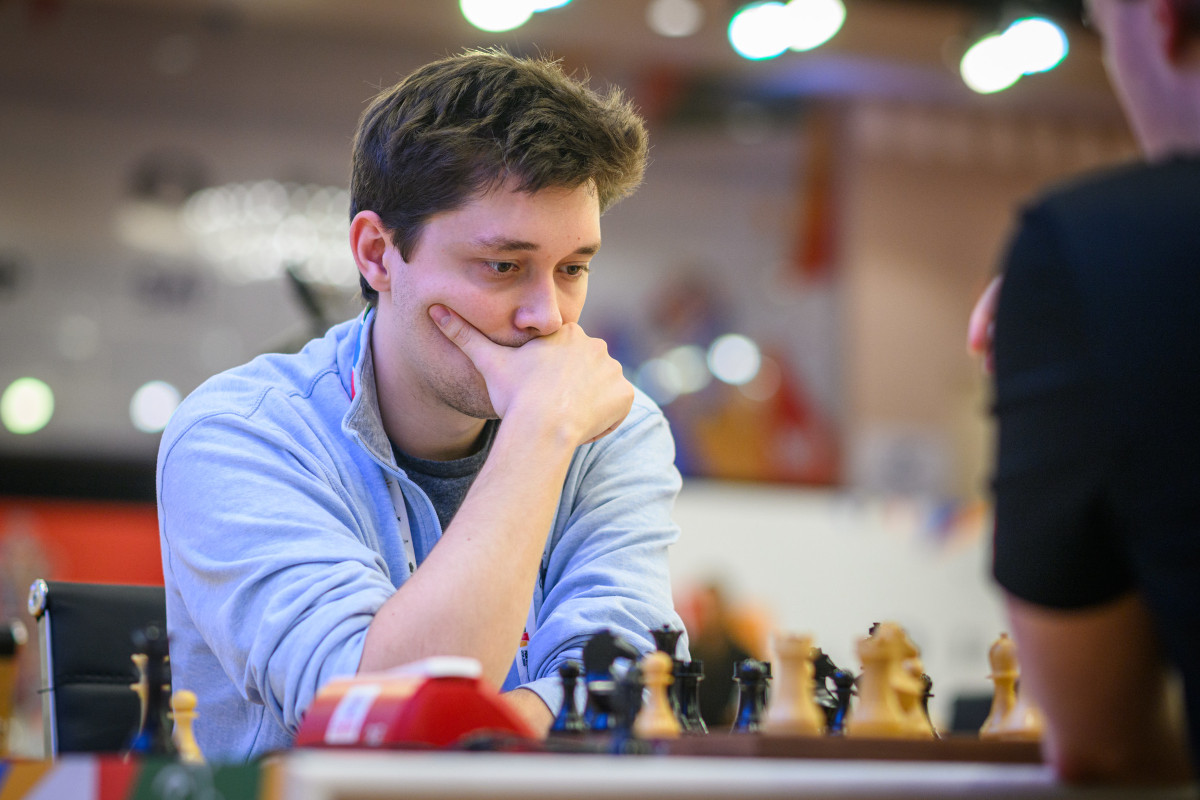
Andrey Esipenko | Photo: Michal Walusza
Svane 1-0 Sargsyan
Analysis by Karsten Müller
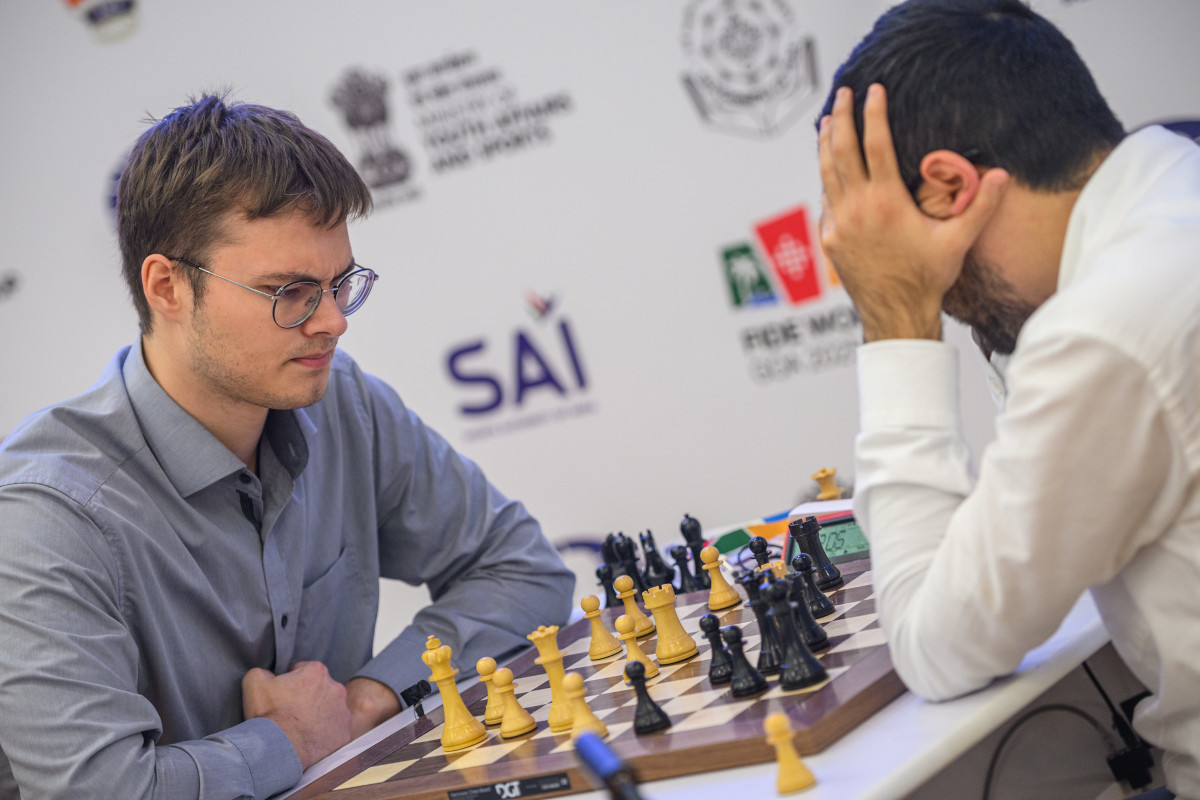
Frederik Svane knocked out world champion Gukesh Dommaraju in the previous round | Photo: Michal Walusza
Leko 0-1 Erigaisi
Analysis by Karsten Müller
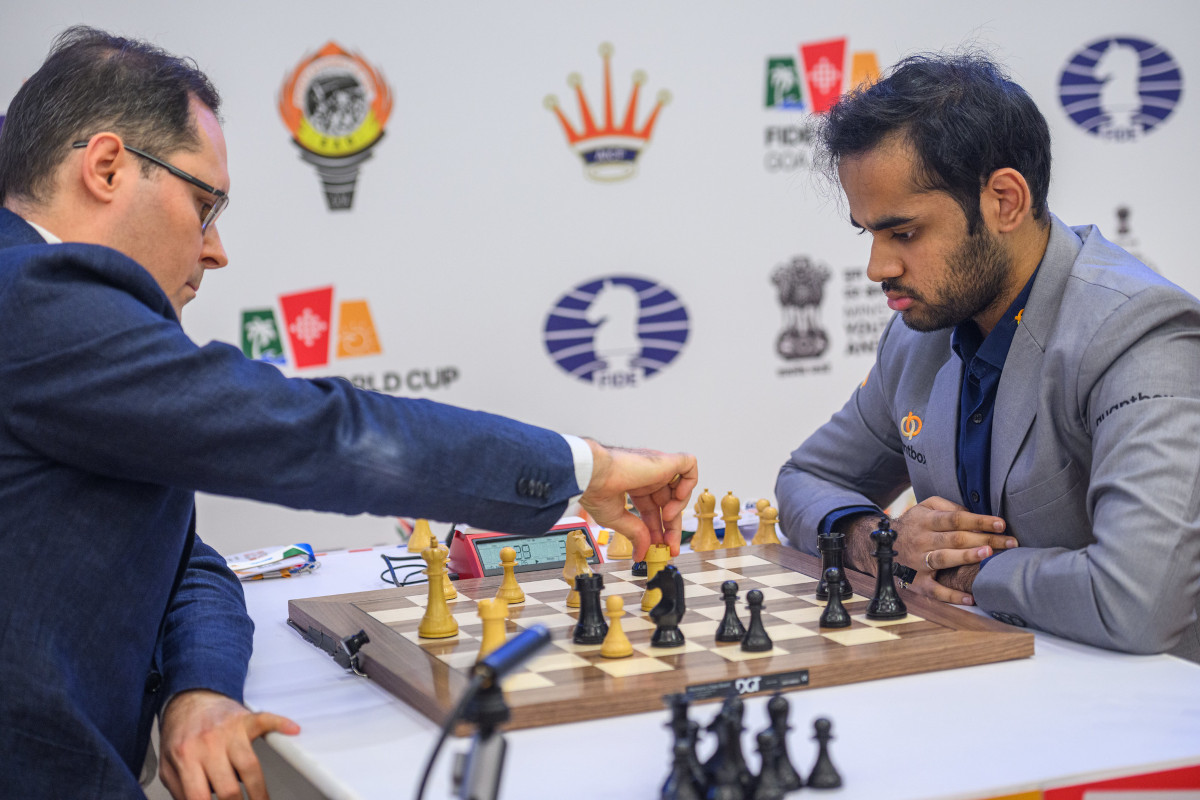
Peter Leko and Arjun Erigaisi | Photo: Michal Walusza
All games – Round 4
Replay games from all rounds at Live.ChessBase.com
EXPAND YOUR CHESS HORIZONS
Data, plans, practice – the new Opening Report In ChessBase there are always attempts to show the typical plans of an opening variation. In the age of engines, chess is much more concrete than previously thought. But amateurs in particular love openings with clear plans, see the London System. In ChessBase ’26, three functions deal with the display of plans. The new opening report examines which piece moves or pawn advances are significant for each important variation. In the reference search you can now see on the board where the pieces usually go. If you start the new Monte Carlo analysis, the board also shows the most common figure paths.
